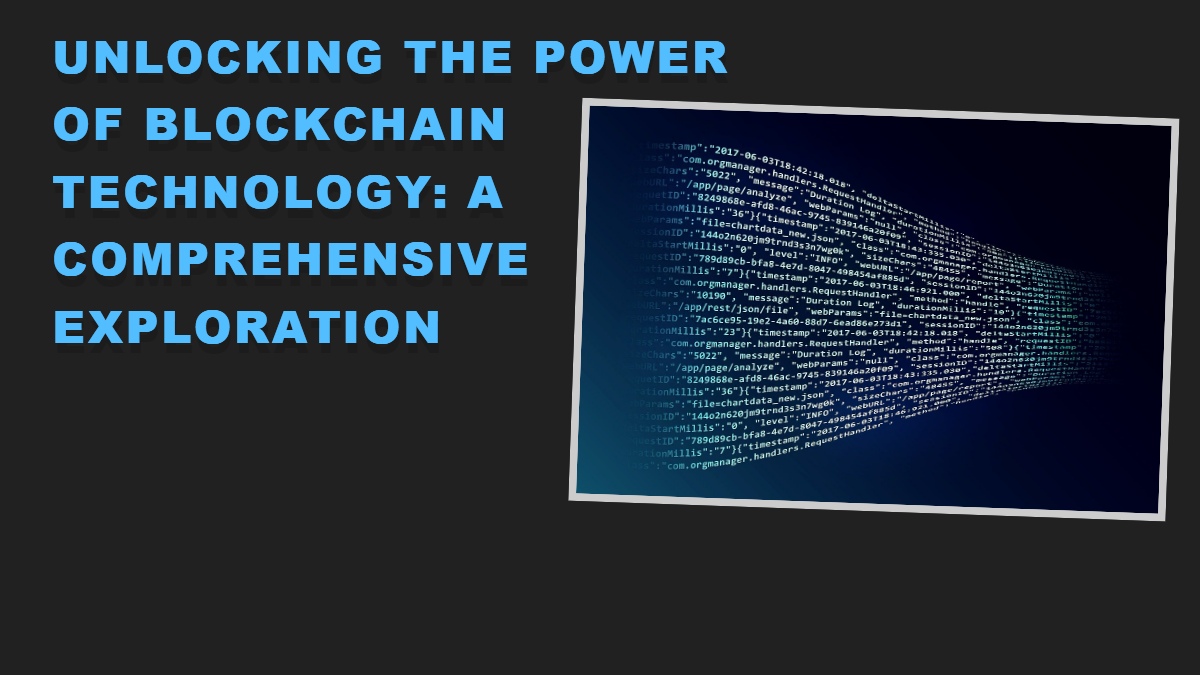Blockchain technology, originally introduced as the underpinning technology for cryptocurrencies, has evolved into a revolutionary force with far- reaching counteraccusations across colorful diligence.
Beyond its association with digital currencies, blockchain holds the implicit to reshape how we conduct deals, manage data, and establish trust in a decentralized manner. This composition explores the multifaceted power of blockchain technology and its transformative impact on different sectors.
Decentralization and Trust
At the heart of blockchain lies the principle of decentralization. Unlike traditional centralized systems, where authority and control are concentrated, blockchain distributes power across a network of bumps. This decentralization enhances trust by barring the need for interposers and furnishing a transparent, tamper- resistant tally of deals.
operations Decentralized finance( DeFi) platforms, smart contracts, and force chain operation systems influence blockchain’s decentralization to streamline processes and foster trust among actors.
invariability and Data Integrity
The invariability of blockchain ensures that formerly data is added to the chain, it becomes resistant to revision. Each block is linked to the former one through cryptographic hashes, creating an incommutable chain of information. This point enhances data integrity, making blockchain a robust result for maintaining secure and transparent records.
Applications diligence similar as healthcare, where maintaining accurate and unforgeable case records is critical, benefit from blockchain’s invariability to insure data integrity.
Smart Contracts and robotization
Smart contracts, tone- executing contracts with predefined rules written in law, automate and apply the terms of agreements. These contracts run on the blockchain, barring the need for interposers and easing unsure deals. They execute automatically when conditions are met, reducing the threat of crimes and fraud.
operations Real estate deals, legal agreements, and fiscal services profit from the effectiveness and translucency introduced by smart contracts, automating processes and reducing the need for homemade intervention.
Tokenization and New Business Models
Blockchain enables the tokenization of means, transubstantiating real- world means into digital commemoratives. This opens up new possibilities for creating decentralized and inclusive business models. Commemoratives can represent power in real estate, art, or indeed shares in a company, furnishing fractional power and adding liquidity.
operations Tokenized securities, non-fungible commemoratives( NFTs), and decentralized independent associations( DAOs) are exemplifications of how tokenization is reshaping traditional business models.
Enhanced Security through Cryptography
Cryptography is abecedarian to blockchain, furnishing secure styles for sale confirmation and party identification. Public and private keys insure the confidentiality and integrity of data. Consensus mechanisms, similar as Proof of Work( PoW) and evidence of Stake( PoS), further enhance security by precluding vicious actors from manipulating the system.
operations fiscal deals, identity verification, and nonpublic data sharing benefit from blockchain’s cryptographic security measures.
Supply Chain Traceability
Blockchain’s translucency and traceability features make it an ideal result for force chain operation. From the origin of raw accoutrements to the final product, each sale is recorded on the blockchain, furnishing a empirical and inflexible record. This translucency fosters responsibility and trust among stakeholders.
operations The food assiduity, medicinal, and luxury goods profit from blockchain’s capability to trace and corroborate the authenticity of products throughout the force chain.
Cross-Border Deals and fiscal Addition
Blockchain facilitates briskly and more cost-effective cross-border deals. Cryptocurrencies and stable coins, frequently erected on blockchain, enable individualities without access to traditional banking structure to share in the global frugality. This can foster fiscal addition and empower individualities in regions with limited fiscal services.
operations Remittances, cross-border trade, and furnishing fiscal services to the unbanked population are areas where blockchain enhances availability and fiscal addition.
At last- Blockchain technology’s power lies not just in its capability to enable digital currencies but in its capacity to review how we establish trust, conduct deals, and manage data. As diligence continue to explore and apply blockchain results, the transformative impact on effectiveness, security, and inclusivity becomes decreasingly apparent.
The trip toward unleashing the full eventuality of blockchain is ongoing, with ongoing developments in scalability, interoperability, and nonsupervisory fabrics. As businesses and originators continue to harness the power of blockchain, we’re witnessing the dawn of a new period in which decentralized, transparent, and secure systems shape the future of how we interact and distribute in the digital age.

Leave a Reply